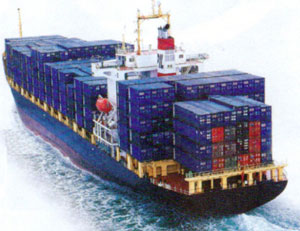“It seems many global companies are going through a mash up of global trade management systems, enterprise systems and, to a lesser extent, their 3PL and other trading partner systems,” says Don Anderson, VP of Transportation Services for Tompkins Associates. “It’s probably not surprising that some shippers still find gaps in these technologies’ capabilities, but the vendors are aware of the opportunities to offer a more complete global trade management solution and I see them each trying to fill these gaps, albeit with different approaches and business models across solution providers.”
INTTRA Offers an Interesting Approach
Among the many alternatives for automating ocean booking processes is a company called INTTRA, which offers ocean booking automation with an appealing twist – the service is free for shippers.
How is that possible? INTTRA was initially funded by a group of six European-based ocean carriers, which looked to help shippers book their own freight and reduce the carriers’ internal IT costs by developing tools in one place for all the participants.
Now in its eighth year, INTTRA is basically a booking portal that has established electronic (EDI) carrier connections with most major ocean carriers and a set of booking process tools for shippers or freight forwarders. The service is free, with transactional costs paid for by the carrier upon which a voyage is booked.
 In fact, Harry Sangree, senior vice president of business development and corporate strategy at INTTRA says that while overall container volumes dropped by double digits in Q1, transactions processed through INTTRA actually increased, as both shippers and carriers looked to gain administrative efficiencies. In fact, Harry Sangree, senior vice president of business development and corporate strategy at INTTRA says that while overall container volumes dropped by double digits in Q1, transactions processed through INTTRA actually increased, as both shippers and carriers looked to gain administrative efficiencies.
“What we set out to do is to take a very un-standardized process and make it standardized,” Sangree told SCDigest.
The company has also established a sister portal called oceanschedules.com, which offers shippers the ability to see and search for ocean voyages, again for free, with the site being supported by ad revenues on the pages.
INTTRA, headquarted in the New Jersey, now supports voyages across the globe and virtually every lane. Sangree, for example, says some 15% of INTTRA business now comes out of South America.
One challenge with portals of any type is the ability to handle the unique needs of different companies. Sangree says INTTRA deals with this by designing its “data pipes” very broadly, giving shippers the ability to send and receive the data elements that are important to them. Carriers, on the other hand, then trigger unique processes, such as a special bill of lading, for some customers as required based on the data definition.
Sangree says there is also flexibility in how a shipper interacts with INTTRA. “Channels” for those interactions include EDI/XML, a web user interface, a desktop application based on email for locations (such as developing countries) where web connectivity is spotty, and an approach that enables a company’s existing supply chain or enterprise applications to directly integrate with the portal.
However a shipper/importer looks to do it, there are complexities with ocean booking, Tompkins’ Anderson adds.
“Booking often requires consideration of carrier, vessel, sailing, slot sharing, container positioning and other attributes of a booking prior to commitment,” he told SCDigest. “Developing business rules and automated decision support to include these kinds of shipper considerations may be too onerous for most companies to accomplish on their own.”
Are you surprised more companies have not moved to automate ocean booking? Is this really starting to change now? What are the advantages/disadvantages of a portal approach versus other solutions? Let us know your thoughts at the Feedback button below. |